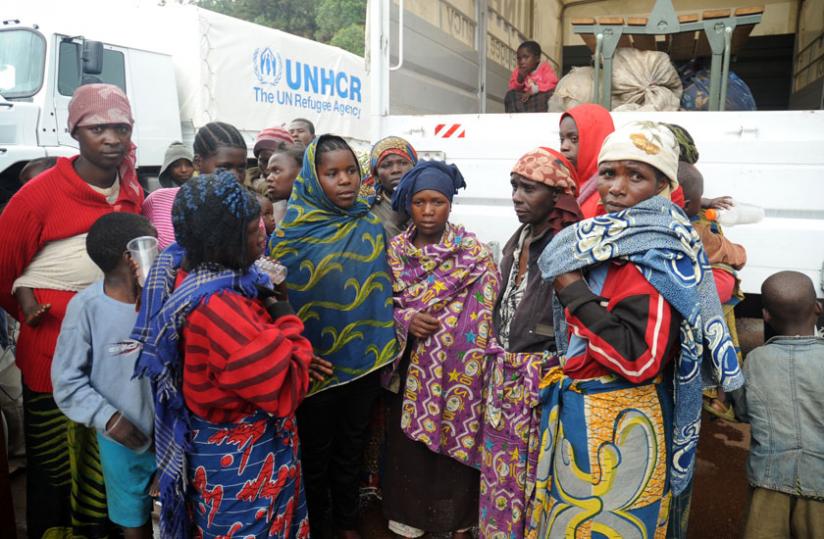The government has called on the United Nations High Commission for Refugees (UNHCR) to revitalise the implementation of the Cessation Clause on Rwandan refugees that was declared in June, last year.


The government has called on the United Nations High Commission for Refugees (UNHCR) to revitalise the implementation of the Cessation Clause on Rwandan refugees that was declared in June, last year.
The Minister for Disaster Management and Refugee Affairs (Midmar), Seraphine Mukantabana, speaking during the 65th executive committee meeting by the UNHCR in Geneva, said some states have not abided by the Clause.
The Cessation Clause, which applies to those who fled the country between 1959 and December 1998, was invoked after it was concluded that there is no reason for any Rwandan to remain in refuge.
In her address, Mukantabana said that much more efforts were still needed to spearhead the implementation of all components stipulated in the Clause, as some states hosting Rwandan refugees have not showed commitment to implement the Clause.
"Since the declaration of the Cessation Clause, some good progress has been made, but challenges remain. Some countries have neither declared nor abided by this Clause,” she said.
"Others declared but have not yet taken any step to implement it, and Rwandans falling under the scope of the Cessation Clause continue to benefit from refugee status as if nothing happened, which is in flagrant violation of international rules for this status.”
Responsive states
According to Midmar, since the invocation of the Cessation Clause, seven countries have made official declaration, meaning that they have terminated refugee status on Rwandans.
They are Burkina Faso, Burundi, Republic of Congo, Niger, Senegal, Togo and Zambia.
"We want to encourage UNHCR to continue to support the process by accompanying host countries in the implementation of the Cessation Clause, including the declaration exercise,” Mukantabana said.
She also called on the international community to support efforts meant to neutralise FDLR militia which remains the major threat for the voluntary repatriation of Rwandan refugees.
"The existence of the terrorist rebel group, FDLR (Democratic Forces for the Liberation of Rwanda in eastern DR Congo) remains a major challenge to the process of voluntary repatriation of thousands of Rwandans,” she said.
"It continues to take hostages as human shield, killing and persecuting innocent civilians who show any intention of returning home.”
The FDLR is a terror group composed of people responsible for the 1994 Genocide against the Tutsi in Rwanda, and has for the past 20 years operated from DR Congo.
Rwanda has invested a lot of resources to promote voluntary repatriation.
Between July 2013 and June this year, more than 24,000 Rwandan refugees have returned including those expelled from Tanzania.
As part of the implementation of the Cessation Clause, Rwanda also supports local integration by facilitating former refugees to acquire national passports to enable them legally stay in their host countries due to socio-economic ties.


